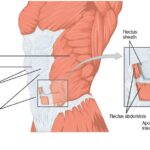At the end of every race, there is the big table of bananas and water. It is common knowledge that bananas are a good source of potassium that helps keep muscle cramps away, especially after a race or a long training session. But what does the potassium actually do for the body and how much should we really be consuming?
What does Potassium do?
A Potassium deficiency can lead to fatigue, irritability, a feeling of bloating and hypertension (aka elevated blood pressure) in addition to muscle cramping.
Potassium (with the help of sodium) is used by the body to keep the body balanced from the inside out, regulating the fluid and mineral levels on both sides of the cells in our bodies. With the cells fluids and minerals balanced, it leads to better nerve impulse transmission and muscle contraction and relaxation. It equalizes the effect of sodium in the body to normalize blood pressure and regulates the heart. Also, it acts as a diuretic and flushes any excess fluid from the body.
How much Potassium should I be consuming?
The average person should be aiming to consume about 3,500 mg of potassium a day. High mileage runners and other endurance athletes should increase that to about 4,700 mg. Also some medications can cause a deficiency, so that should be a discussion you should have with your doctor.
Where can I find Potassium?
There are potassium supplements available, but the best way for your body to absorb potassium is through food. Too much potassium can lead to nausea, vomiting, and in extreme cases, cardiac arrest or death. It is difficult to consume too much since the body usually eliminates the excess from the body, but it is possible to have too much, especially if there are medical conditions, like those with kidney problems. This too should be discussed with medical professionals.
It is well known that bananas are a good source of potassium, but there are many foods that have the same amount or more. This is great news for those who are not fans of bananas or those who need a bit more variety in their diet.
A banana has about 500 mg of potassium but a 4 inch baked potato has 800 mg and nectarine has 300 mg. For a half a cup serving of the following foods, you can get at least 225 mg per serving: apricots, avocados, cantaloupe, honeydew, kiwi, lima beans, milk, oranges, prunes, spinach, tomatoes, and meats/poultry/fish.
So the next time you are on a long training run, remember that bananas are great but you don’t have to limit yourself to a post training session snack to just one food anymore. Variety is the spice of life!
References:
- http://www.mensfitness.com/nutrition/supplements/potassium
- http://www.healthaliciousness.com/articles/food-sources-of-potassium.php
- http://www.runnersworld.com/nutrition-runners/mmm-potassium
This article/video is for educational purposes only; do not attempt without your physician’s clearance. If you are in pain or injured, see your physician.
Copyright © Vidal Sports LLC 2018






